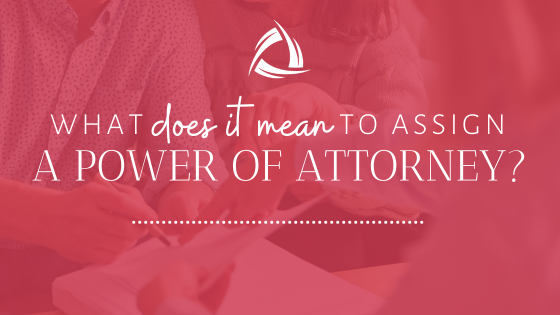Assigning a power of attorney is more than simply choosing someone to speak on your behalf when you are incapacitated. Much more goes into the choice and what they can do for you. Since these individuals will speak for you and abide by your wishes when you cannot do so yourself, the process is important to follow. Did you know there is more than one type of power of attorney? Insight like this can help ensure you put the right person in charge of your wishes.
The Different Types of Power of Attorneys
There are a handful of different types of attorneys, each with its own responsibilities and limits. When deciding who to assign and which attorney to utilize, you must know what each does.
A General Power of Attorney can act for you in legal, financial, health, and business situations. While this might seem to be the perfect title, a general POA is not intended for end-of-life circumstances. This option can be ideal if you are deployed or constantly traveling but not in an emergency.
A Financial Power of Attorney can make financial decisions on your behalf, whether you are incapacitated or not. You can choose what tasks they perform and give them certain rights depending on whether you are incapacitated. A financial POA can pay your bills, close accounts, manage current investments, and even run your business.
A Durable Power of Attorney goes a step further than a general POA, as this type can speak on your behalf once you become incapacitated. Your general and durable POA may not be the same people, or you may choose to have one over the other. It is your choice and preference on what you want throughout your life.
A Durable Medical Power of Attorney can make healthcare decisions on your behalf. This can be medical treatments, medicine, surgery, and more. It can be helpful to provide your medical POA a directive of choices you are willing to make on your health so they have a reference if the time comes.
How to Choose the Right One
You can choose to have any and all types of POAs; it is all dependent on your needs and expectations. However, when you assign someone as your POA, you should choose carefully.
Many people immediately think about choosing their adult children. If they are of sound mind and will answer questions with your motivations in mind, then this can be a good choice. Many might also choose a spouse, sibling, or dear friend. While challenging, try to keep emotions out of this decision. You do not owe anyone the right to your decisions, and you want to ensure whoever you pick will be logical and aligned with your needs.
When choosing, you can ask yourself several questions…
- Do you trust them to be level-headed in times of emergencies?
- Do you want more than one power of attorney?
- Are they financially smart in their own life?
- Are you choosing them based on obligation or because you want them to oversee your wishes?
- Is this person in good health themselves?
The Steps of Assigning a Power of Attorney
There are proper steps to take to ensure you are acting legally and your wishes will be upheld when you truly need them to be.
First, you must speak to a lawyer, financial advisor, and your doctors. These three people can ensure that you are setting your future up for success and are choosing the right and legal path to travel.
Then, choosing your POAs is the next step. When you decide, you will want to have information about them, such as their name, address, email, phone number, and relationship with you. Additionally, you need to inform them that you are choosing them. Once you have that, you can fill out the designated power of attorney forms. When this is all done, keep them in a safe place.
What Happens If You Want to Change Attorneys?
There is a lot of change in one’s life, and there might be a time you want to change your POA. That is doable and not too difficult if you have assistance from a lawyer to ensure you are going through the proper steps.
You will first need to obtain the proper documentation about the new POA and a new POA form. You will then need to submit a Notice Revocation or Revocation of Power of Attorney form, let everyone involved know, and then submit the new POA form.
The process of choosing a POA is an essential part of the estate planning process. If you have questions or want to get started, contact the team at Hartmann Law.

